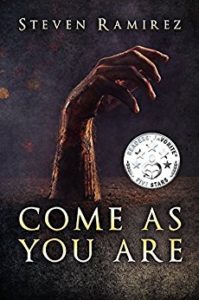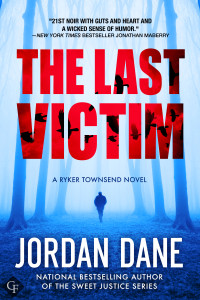If you’re a writer—crime thriller or otherwise—sometimes you need a break… then a kick in the butt to get back in the chair and your fingers on the keys. I’m going through this after taking a two-week writing hiatus. Rita (my wife of 37 years) and I took a vacation, and Rita forbid (forbade?) me to write during our time away.
So, I’m back home and started to type a new manuscript that’s book 6 in my based-on-true-crime series. Although I know the story inside out, I confess I had a hard time getting in the chair and placing my fingers on the keyboard. Knowing I also had a Kill Zone post due this week, I decided to do a two-birds-with-one stone thing and get something stirring.
I spent an evening surfing the net and searching for motivation and creativity support. It worked. In the past three days, I’ve written 8991 words in my Between The Bikers manuscript. My renewed energy and creative juice is partly thanks to taking a writing break and finding inspiring quotes from inspiring crime thriller writers. I’d like to share some of them with you.
——
The way to write a thriller is to ask a question at the beginning, and answer it at the end. ~Lee Child
Place the body near the beginning of your book—preferably on the first page, perhaps the first sentence. ~Louise Penny
I’m interested in starting stories at the moment of some crisis to see how the character deals with it. ~Paul Auster
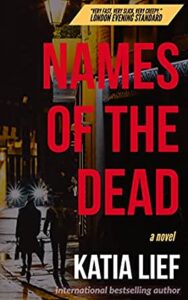 Figure out what exactly is at stake, and how to establish it quickly. That’s your conflict. ~Katia Lief
Figure out what exactly is at stake, and how to establish it quickly. That’s your conflict. ~Katia Lief
I’m always pretending that I’m sitting across from somebody. I’m telling a story, and I don’t want them to get up until I’m finished. ~James Patterson
Life is about working out who the bad guy is. ~Sophie Hannah
An initial crisis may produce a question, one that takes the form of a challenge to the reader: Can they solve the puzzle before the answer is revealed? In its simplest form the crisis is a murder and the question is whodunit? ~Unknown
I can’t start writing until I have a closing line. ~Joseph Heller
Often know how the book will end and have imagined a number of major scenes throughout, but not always how I will get there. When I’m about two-thirds done I re-outline the whole book so I know that I’m delivering on all I promised. ~Jeff Abbott
Crime stories are rarely about crime. They’re a study of its aftermath. ~Unknown
The only writers who survive the ages are those who understand the need for action in a novel. ~Dean Koontz
People don’t read books to get to the middle. They read to get to the end. ~Mickey Spillane
I do extensive outlines before I write a single word. ~Jeffrey Deaver
Plot develops from the initial setup of the characters, their conflicts and the location. This development is fueled by the characters’ decisions. These choices should be tough and compromising with high risks of failure. ~Unknown
 I like to come up with a massive scale concept and throw in very ordinary characters because I think if you have a massive scale concept with massive scale characters they tend to cancel each other out. People have more fun if they can imagine how either themselves or the type of people they know would react in a bizarre situation. It’s a bit boring if you know how some highly trained soldier is going to react to a situation. It’s not very interesting compared to how someone who is an electrician or a schoolteacher might react to a situation. ~Christopher Brookmyre
I like to come up with a massive scale concept and throw in very ordinary characters because I think if you have a massive scale concept with massive scale characters they tend to cancel each other out. People have more fun if they can imagine how either themselves or the type of people they know would react in a bizarre situation. It’s a bit boring if you know how some highly trained soldier is going to react to a situation. It’s not very interesting compared to how someone who is an electrician or a schoolteacher might react to a situation. ~Christopher Brookmyre
The first chapter sells the book; the last chapter sells the next book. ~Mickey Spillane
Readers have to feel you know what you’re talking about. ~Margaret Murphy
Keep asking ‘Who wants something?’ ‘Why do they need it?’ and ‘What’ll happen if they don’t get it? ~Unknown
A man’s grammar, like Caesar’s wife, should not only be pure, but above suspicion of impurity. ~Edgar Allan Poe
Chapters are shorter than they used to be, and I have to be creative about ways to keep the pace moving: varying my sentence length, making sure each chapter ends on a note of suspense, keeping excess narration to a minimum. ~Joseph Finder
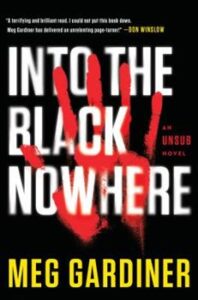 My ideas? Headlines. The human heart. My deepest fears. The inner voice that says: if it scares you, it’ll scare readers too. ~Meg Gardiner
My ideas? Headlines. The human heart. My deepest fears. The inner voice that says: if it scares you, it’ll scare readers too. ~Meg Gardiner
Surprise is when a leader is unexpectedly shot whilst giving a speech. Suspense is when the leader is delivering a speech while an assassin waits in the audience. ~Unknown
I’d have to say that most of my ideas originate with everyday anxieties. What if I forgot to lock the door? What if a horrific crime happened next door? What if my daughter didn’t show up at work? What if I woke up one day and the house was empty? ~Linwood Barclay
Ideas are not the hard part of writing. I have ideas all the time. The challenge is understanding which ideas are the most interesting and powerful and dramatic, and then finding the best way to bring them to life. It’s all in the execution, because the idea is where the work begins, not where it ends. ~Jeff Abbott
If you don’t understand that story is character and not just idea, you will not be able to breathe life into even the most intriguing flash of inspiration. ~Elizabeth George
The character that lasts is an ordinary guy with some extraordinary qualities. ~Raymond Chandler
You’re looking for your character who’s got the absolute most at stake, and that’s the person who you want your story to be about. ~Daniel Palmer
Keep a plate spinning until the final paragraph. Then let it fall. ~Unknown
Books aren’t written, they’re rewritten. Including your own. It is one of the hardest things to accept, especially after the seventh rewrite hasn’t quite done it… ~Michael Crichton
You can always edit a bad page. You can’t edit a blank page. ~Jodi Picoult
When you’re editing write the following words onto a Post-it note in big red letters and stick it on your monitor: ‘Who Cares?’. If something has no bearing on the story, leave it out. ~Stuart MacBride
If I waited for perfection, I would never write a word. ~Margaret Atwood
The best advice is the simplest. Write what you love. And do it everyday. There’s only one way to learn how to write, and that’s to write. ~Steve Berry
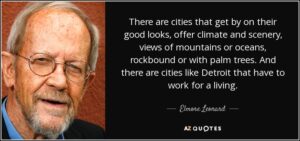 Don’t go into great detail describing places and things… You don’t want descriptions that bring the action, the flow of the story, to a standstill. ~Elmore Leonard
Don’t go into great detail describing places and things… You don’t want descriptions that bring the action, the flow of the story, to a standstill. ~Elmore Leonard
Read aloud. And not just your own work. Read good writing aloud.
Listen to the sound the words make. ~Unknown
A good novel tells us the truth about its hero; but a bad novel tells us the truth about its author. ~G K Chesterton
Write about what you never want to know. ~Michael Connelly
I always refer to style as sound. The sound of the writing. ~Elmore Leonard
Before you can be a writer you have to experience some things, see some of the world, go through things – love, heartbreak, and so on -, because you need to have something to say. ~John Grisham
Writing is work. It’s also gambling. You don’t get a pension plan. Other people can help you a bit, but essentially you’re on your own. Nobody is making you do this: you chose it, so don’t whine. ~Margaret Atwood
 The words characters use and the gestures they make should be enough for the reader to know who is talking and how they’re feeling. ~Unknown
The words characters use and the gestures they make should be enough for the reader to know who is talking and how they’re feeling. ~Unknown
I try to leave out the parts that people skip. ~Elmore Leonard
Writing is the flip side of sex – it’s good only when it’s over. ~Hunter S Thompson
My task, which I am trying to achieve, is, by the power of the written word, to make you hear, to make you feel – it is, before all, to make you see. ~Joseph Conrad
Write every day even if it is just a paragraph. ~Michael Connelly
All the information you need can be given in dialogue. ~Elmore Leonard
Have something you want to say. ~Ian Rankin
Any author, like their protagonist, must endure sacrifice, or be willing to do so, ~Unknown
There are only two pieces of advice any would-be writer needs. The first is Give up. Those who heed that don’t need to hear the second, which is Don’t give up. ~Mick Herron
My purpose is to entertain myself first and other people secondly. ~John D MacDonald
I never read a review of my own work. Either it was going to depress me or puff me up in ways that are useless. ~Paul Auster
I owe my success to having listened respectfully to the best advice, and then going away and doing the exact opposite. ~G K Chesterton
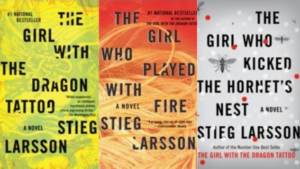 I abhor crime novels in which the main character can behave however he or she pleases, or do things that normal people do not do, without those actions having social consequences. ~Steig Larsson
I abhor crime novels in which the main character can behave however he or she pleases, or do things that normal people do not do, without those actions having social consequences. ~Steig Larsson
The best crime novels are all based on people keeping secrets. All lying – you may think a lie is harmless, but you put them all together and there’s a calamity. ~Alafair Burke
With the crime novels, it’s delightful to have protagonists I can revisit in book after book. It’s like having a fictitious family. ~John Banville
I think the “crime novel” has replaced the sociological novel of the 1930s. I think the progenitor of that tradition is James M. Cain, who in my view is the most neglected writer in American literature. ~James Lee Burke
The most difficult part of any crime novel is the plotting. It all begins simply enough, but soon you’re dealing with a multitude of linked characters, strands, themes and red herrings – and you need to try to control these unruly elements and weave them into a pattern. ~Ian Rankin
Crime fiction makes money. It may be harder for writers to get published, but crime is doing better than most of what we like to call CanLit. It’s elementary, plot-driven, character-rich story-telling at its best. ~Linwood Barclay
Crime fiction confirms our belief, despite some evidence to the contrary, that we live in a rational, comprehensible, and moral universe. ~P.D. James
Most crime fiction, no matter how ‘hard-boiled’ or bloodily forensic, is essentially sentimental, for most crime writers are disappointed romantics. ~John Banveiile
And there are rules for crime fiction. Or if not rules, at least expectations and you have to give the audience what it wants. ~Tod Goldberg
Crime fiction is the fiction of social history. Societies get the crimes they deserve. ~Denise Mina
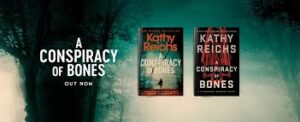 One of the surprising things I hadn’t expected when I decided to write crime fiction is how much you are expected to be out in front of the public. Some writers aren’t comfortable with that. I don’t have a problem with that. ~Kathy Reichs
One of the surprising things I hadn’t expected when I decided to write crime fiction is how much you are expected to be out in front of the public. Some writers aren’t comfortable with that. I don’t have a problem with that. ~Kathy Reichs
The mainstream has lost its way. Crime fiction is an objective, realistic genre because it’s about the real world, real bodies really being killed by somebody. And this involves the investigator in trying to understand the society that the person lived in. ~Michael Dibin
Anyone who says, ‘Books don’t change anything,’ or – more commonly – that crime fiction is the wrong genre for promoting social change – should take a closer look. ~Andrew Vachss
The danger that may really threaten (crime fiction) is that soon there will be more writers than readers. ~Jacques Barzun
I’ll bet you $10 right now that there are an awful lot of literary writers who started a long time ago and now they find themselves in this place where secretly they feel trapped. And you know what they really read for fun? They read crime fiction. ~Robert Crais
There is sometimes a feeling in crime fiction that good writing gets in the way of story. I have never felt that way. All you have is language. Why write beneath yourself? It’s an act of respect for the reader as much as yourself. ~John Connolly
 It wasn’t a decision to become a writer. I wanted to become a writer of crime fiction. I was very specific. ~Michael Connelly
It wasn’t a decision to become a writer. I wanted to become a writer of crime fiction. I was very specific. ~Michael Connelly
Crime fiction, especially noir and hardboiled, is the literature of the proletariat. ~Adrian McKinty
There are a number of writers who believe it is their duty to throw as many curve balls at the reader as possible. To twist and twist again. These are the Chubby Checkers of crime fiction and, while I admire the craft, I think that it can actually work against genuine suspense. ~Mark Billingham
I had done 12 little romance books, and I decided I wanted to move into crime fiction. ~Janet Evanovich
I respond very well to rules. If there are certain parameters it’s much easier to do something really good. Especially when readers know what those are. They know what to expect and then you have to wrong-foot them. That is the trick of crime fiction. And readers come to crime and graphic novels wanting to be entertained, or disgusted. ~Denise Mina
Most crime fiction plots are not ambitious enough for me. I want something really labyrinthine with clues and puzzles that will reward careful attention. ~Sophie Hannah
I’ve always been drawn to the extremes of human behavior, and crime fiction is a great way to explore the lives and stories of fascinating people. ~Nick Petrie
The best crime stories are not about how cops work on cases. It’s about how cases work on cops. ~Joseph Wambaugh
If you don’t have the time to read, you simply don’t have the tools to write. ~Stephen King
What about you, Kill Zoners? What great writing quotes do you have? What would you like to share?
——
 Garry Rodgers is a retired homicide detective and forensic coroner, now a struggling crime writer and indie publisher. Garry has twenty pieces up on Amazon, Kobo, and Nook including his Based-On-True-Crime Series featuring investigations he was involved in while attached to the RCMP’s Serious Crimes Section.
Garry Rodgers is a retired homicide detective and forensic coroner, now a struggling crime writer and indie publisher. Garry has twenty pieces up on Amazon, Kobo, and Nook including his Based-On-True-Crime Series featuring investigations he was involved in while attached to the RCMP’s Serious Crimes Section.
Garry Rodgers also has a popular website and regular blog at www.DyingWords.net. When not writing, Garry spends time putting around the saltwater near his home on Vancouver Island in British Columbia at Canada’s southwest coast.
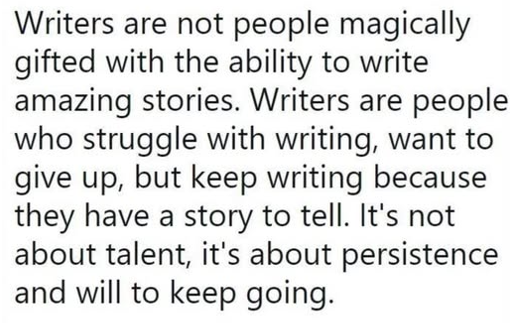

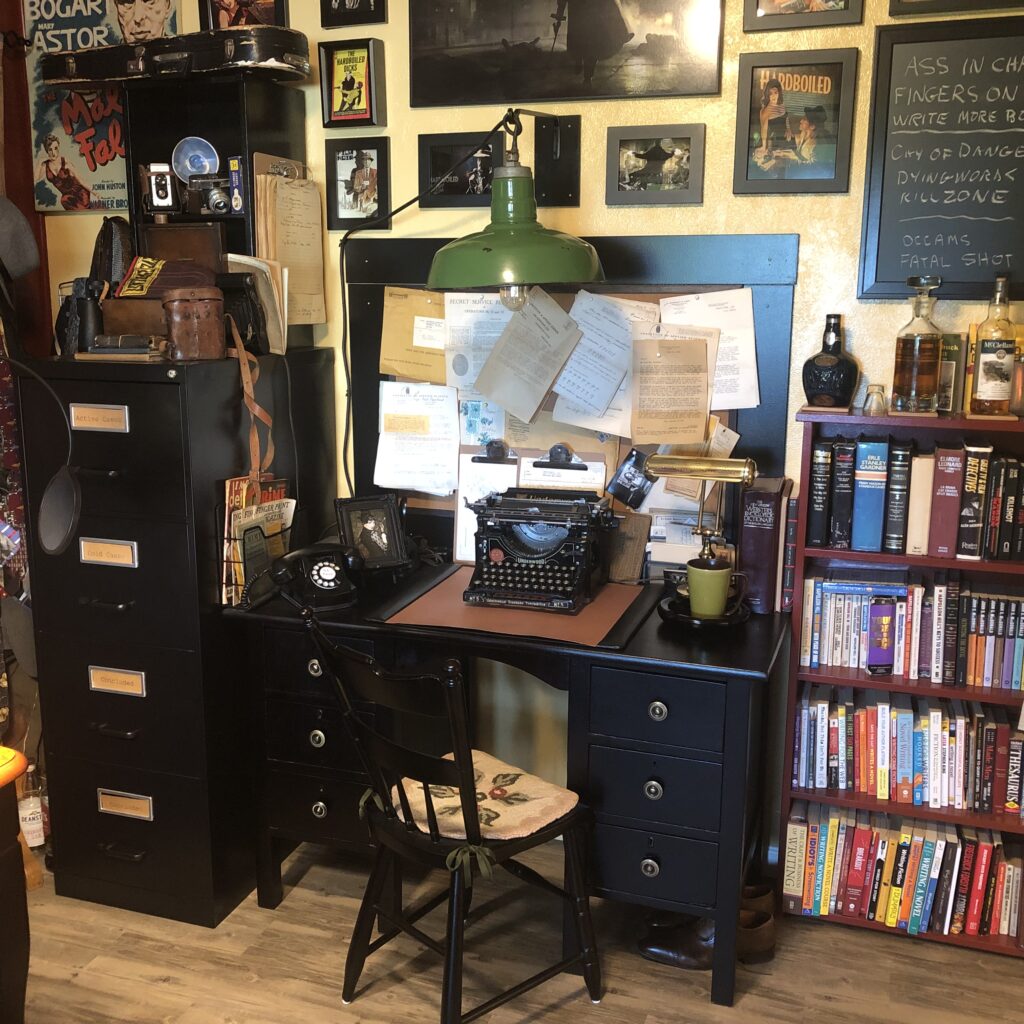


 My definite purpose—my wanna—is creating the series titled City Of Danger. It’s a concept long brewing in my mind but activated by a chance opportunity with the film industry. I committed to City Of Danger on April 7, 2021 and steadily worked on developing it for the last ten months. I expect the pilot episode releasing this summer.
My definite purpose—my wanna—is creating the series titled City Of Danger. It’s a concept long brewing in my mind but activated by a chance opportunity with the film industry. I committed to City Of Danger on April 7, 2021 and steadily worked on developing it for the last ten months. I expect the pilot episode releasing this summer.













